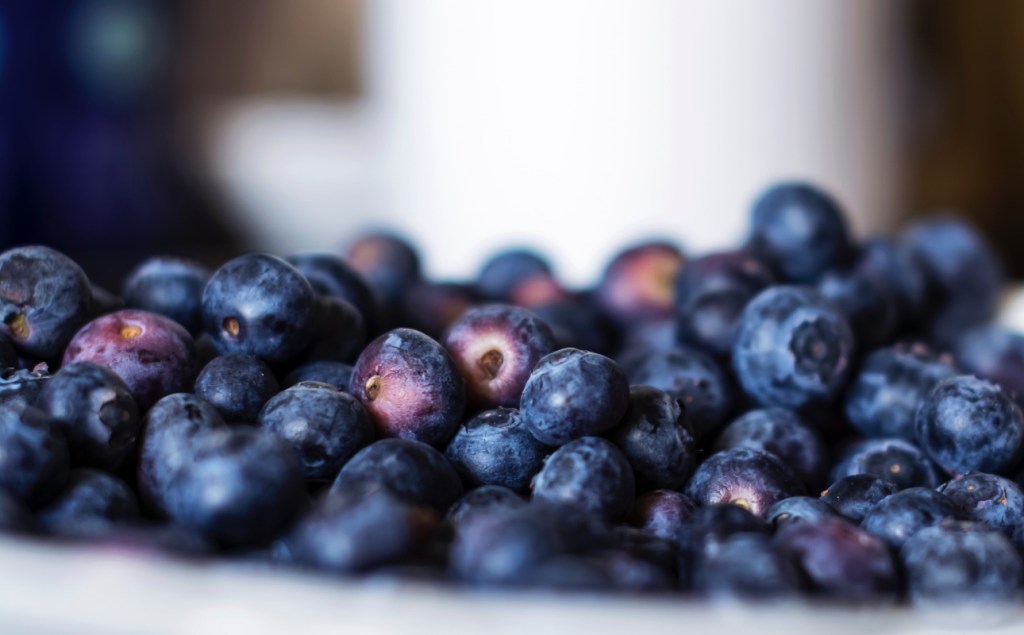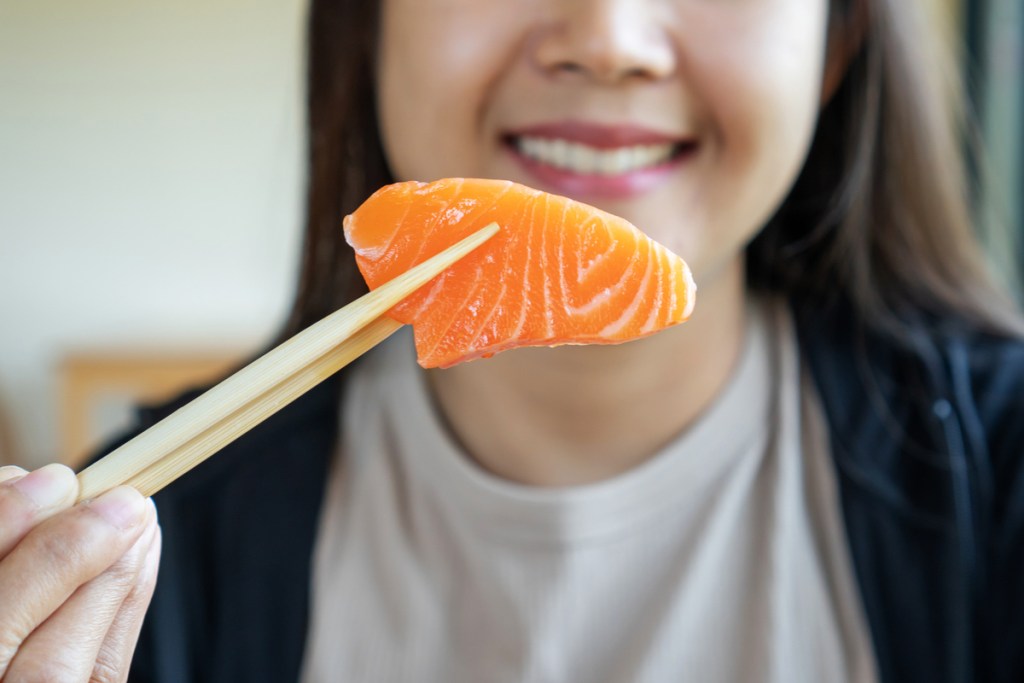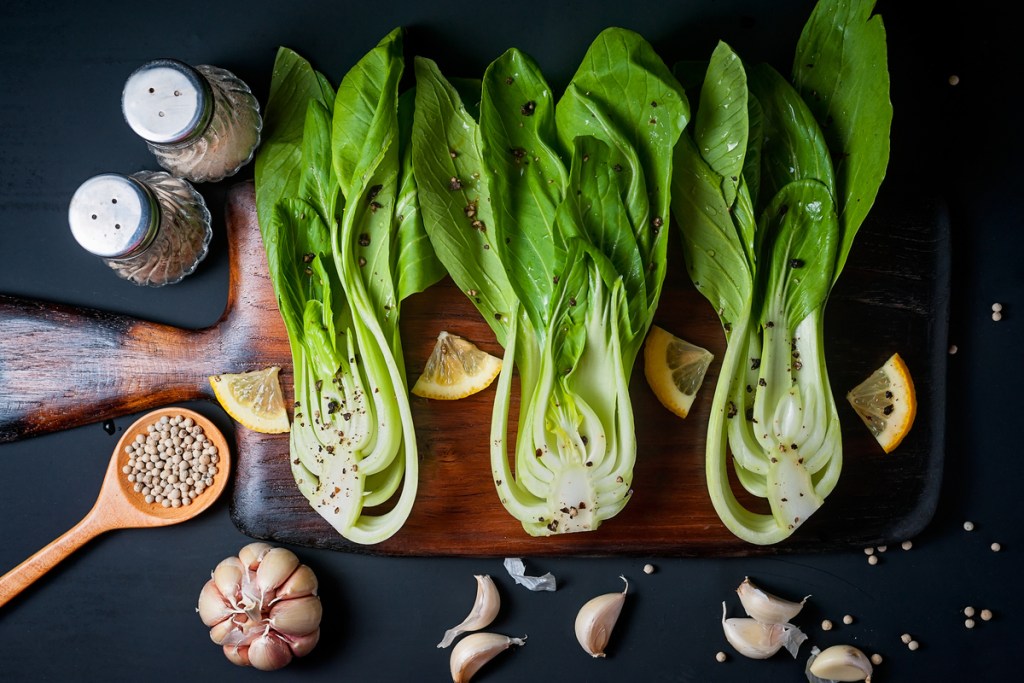Memory loss is one of the most common cognitive conditions among adults. According to the U.S. Centers for Disease Control and Prevention, 11 percent of U.S. adults experience subjective cognitive decline, experiencing frequent confusion or memory loss. While there is no silver-bullet cure for memory loss, you can make a difference every day with the food you eat. Reports from Harvard Medical School show that red meat and other foods that contain high amounts of sugar, saturated fat, and trans fats can lead to cognitive decline, while certain superfoods have a protective effect.
So what foods help with memory? We’ve identified some of the most brain-healthy foods available that will keep your brain in tip-top shape. If you’re concerned about your memory or other cognitive functions, reach out to a healthcare professional for guidance.

Berries
Berries have a secret weapon in the fight against memory loss: flavonoids, a special plant chemical that helps to sharpen memory. Brilliant colors are one of the indicators that a product contains flavonoids, so while those berries on the supermarket shelf are visually appealing, they should appeal to your health as well.
Looking for berries full of flavonoids? Add blackberries, blueberries, raspberries, and strawberries to your grocery list.
In particular, blueberries are one of the world’s greatest superfoods, and they’re a particularly strong ally in brain health. One study showed that consuming blueberries led to better blood flow in the brain, along with improvements in memory and focus.

Fish
Salmon is particularly well known for its abundance of omega-3 fatty acids and docosahexaenoic acid (DHA). Both of these compounds can have positive impacts on the brain, especially when it comes to mild memory loss and mood stability.
But it doesn’t stop with salmon. Other brain-healthy, fatty fish include herring, mackerel, sardines, trout, and tuna.
Studies found that the brain-boosting side effects of these acids are stronger when consumed through food, so get your omega-3s through your diet, as opposed to over-the-counter supplements.

Green vegetables
Green vegetables, including but not limited to the tried and true leafy greens, are perhaps the most familiar superfood. They’re full of brain-boosting nutrients like vitamin K, lutein, folate, and beta carotene.
When you’re in the produce section during your next trip to the grocery store, make sure you have asparagus, bok choy, broccoli, collard greens, kale, spinach, or swiss chard in your shopping cart.
Each vegetable varies in terms of specific nutritional profile, but in general, all these green veggies have demonstrated positive effects on certain aspects of cognition and memory. For example, a 2018 study published in the journal Neurology found that one daily serving of green leafy vegetables could help slow the decline of age-related cognitive decline.
Nuts
Nut consumption is also linked to better cognitive performance, including improved memory. Just like fatty fish, nuts power your brain because of their abundance of omega-3 fatty acids. They’re very rich in other micronutrients as well, including vitamin E, which protects the brain from damage.
Not all nuts are created equal, so if you’re looking for the best varieties for your brain, pick up almonds, walnuts, pumpkin seeds, and peanuts.
Walnuts and pumpkin seeds in particular are powerful brain helpers, offering an excellent source of magnesium, iron, zinc, and copper.
It isn’t difficult to include brain-healthy foods into your diet. There are so many delicious options that prevent cognitive decline, so you’re bound to fall in love with a few of them, at least. The key is making an effort to find what you like and sticking to that path. Have fun with it, embrace trial and error, and give your brain some love.
BlissMark provides information regarding health, wellness, and beauty. The information within this article is not intended to be medical advice. Before starting any diet or exercise routine, consult your physician. If you don’t have a primary care physician, the United States Health & Human Services department has a free online tool that can help you locate a clinic in your area. We are not medical professionals, have not verified or vetted any programs, and in no way intend our content to be anything more than informative and inspiring.



